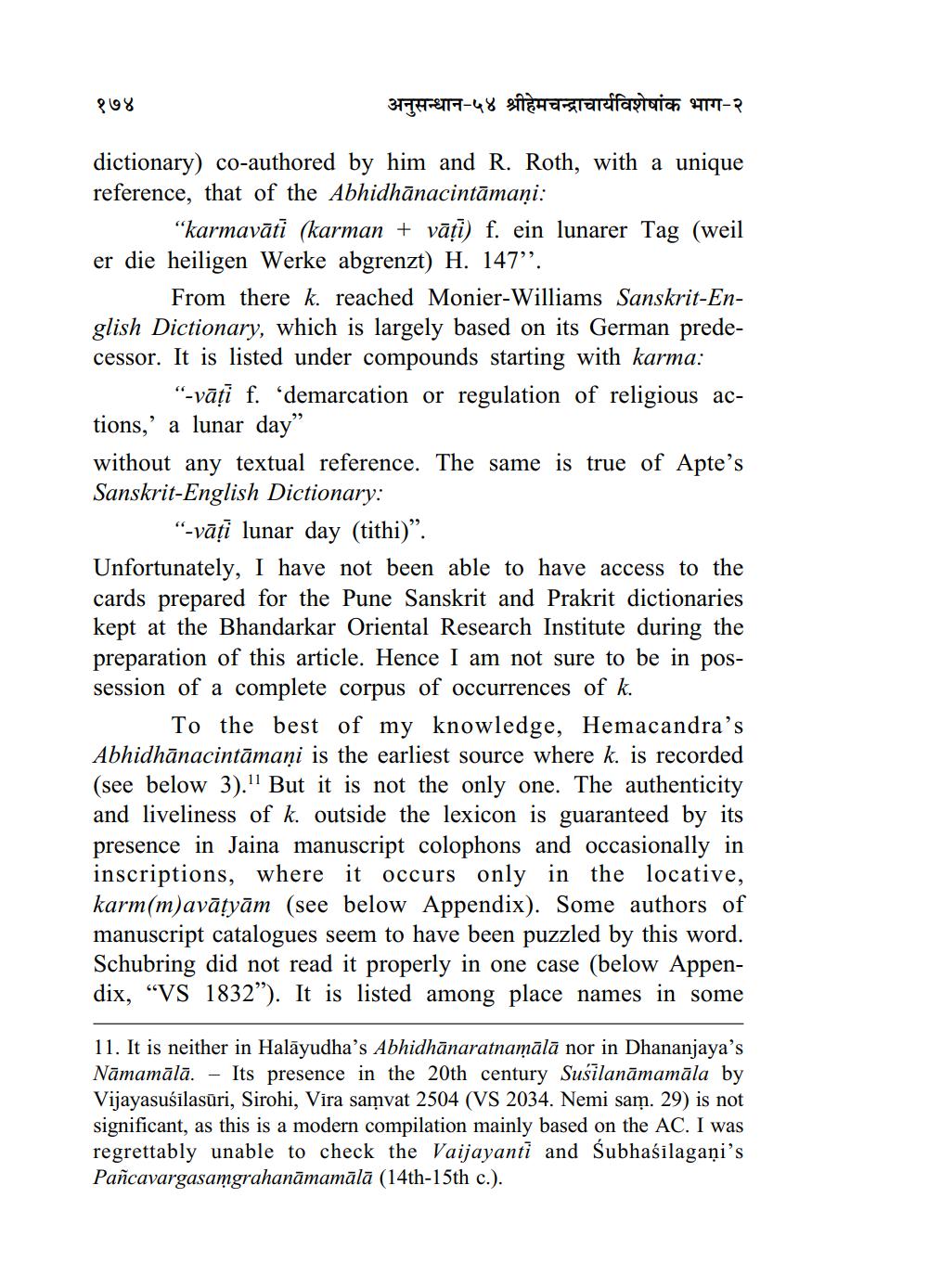________________
अनुसन्धान - ५४ श्री हेमचन्द्राचार्यविशेषांक भाग - २
dictionary) co-authored by him and R. Roth, with a unique reference, that of the Abhidhanacintāmaṇi:
१७४
"karmavati (karman + vāți) f. ein lunarer Tag (weil er die heiligen Werke abgrenzt) H. 147".
From there k. reached Monier-Williams Sanskrit-English Dictionary, which is largely based on its German predecessor. It is listed under compounds starting with karma: "-vāti f. 'demarcation or regulation of religious actions,' a lunar day"
without any textual reference. The same is true of Apte's Sanskrit-English Dictionary:
"-vāți lunar day (tithi)".
Unfortunately, I have not been able to have access to the cards prepared for the Pune Sanskrit and Prakrit dictionaries kept at the Bhandarkar Oriental Research Institute during the preparation of this article. Hence I am not sure to be in possession of a complete corpus of occurrences of k.
To the best of my knowledge, Hemacandra's Abhidhanacintamani is the earliest source where k. is recorded (see below 3). But it is not the only one. The authenticity and liveliness of k. outside the lexicon is guaranteed by its presence in Jaina manuscript colophons and occasionally in inscriptions, where it occurs only in the locative, karm (m)avāṭyām (see below Appendix). Some authors of manuscript catalogues seem to have been puzzled by this word. Schubring did not read it properly in one case (below Appendix, "VS 1832"). It is listed among place names in some
11. It is neither in Halayudha's Abhidhānaratnamālā nor in Dhananjaya's Nāmamālā. Its presence in the 20th century Susilanāmamala by Vijayasuśilasūri, Sirohi, Vira samvat 2504 (VS 2034. Nemi sam. 29) is not significant, as this is a modern compilation mainly based on the AC. I was regrettably unable to check the Vaijayanti and Subhasilagani's Pañcavargasamgrahanāmamālā (14th-15th c.).
=




